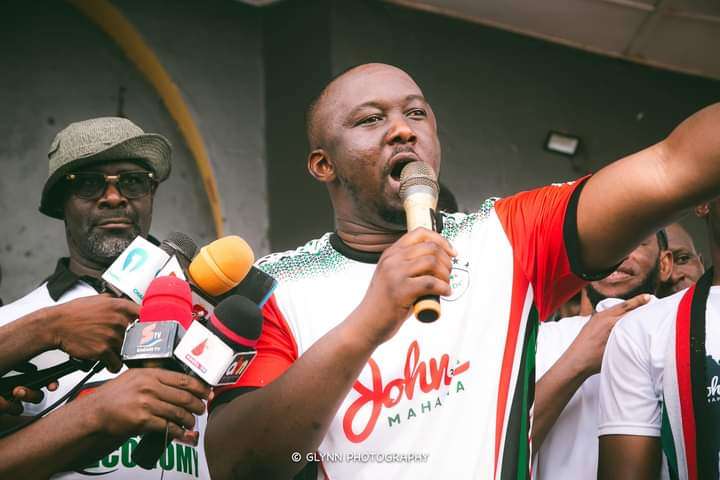At a recent campaign rally for the opposition National Democratic Congress (NDC), Deputy Communications Officer Malik Basintale launched a scathing critique of Vice President Dr. Mahamudu Bawumia regarding the escalating costs associated with Hajj fees in Ghana. Basintale aimed to undermine Dr. Bawumia’s credibility, particularly among the Muslim community, by highlighting the significant increase in Hajj fees to an unprecedented GHS 75,000 under the New Patriotic Party (NPP) administration. He emphasized that despite Dr. Bawumia’s initial arrival into office with a Quran, which symbolized his commitment to Islamic values, he has failed to advocate for the interests of Muslims in Ghana, particularly when it comes to the accessibility of religious pilgrimages.
Malik Basintale’s remarks were laden with a call to action for the electorate, framing the socio-economic challenges faced by citizens as analogous to the neglect shown by the current government. He urged Ghanaians to reject Dr. Bawumia at the polls, suggesting that the Vice President’s track record is not aligned with the needs and aspirations of the people, especially the Muslim populace. Basintale articulated that the astronomical rise in Hajj fees reflects a broader neglect of community needs and a failure to deliver on promises made to support Ghanaians from all walks of life.
During his address, Basintale did not just focus on Hajj fees but also connected this issue to larger economic themes, advocating for a shift toward a more equitable governance led by former President John Dramani Mahama. He encouraged the audience to consider how their votes could influence future employment opportunities, referencing the proposed “24-hour economy” that Mahama’s campaign promises to implement. This approach appealed to the electorate’s desire for jobs and improved economic conditions, presenting Mahama as the candidate capable of bringing about the necessary reforms.
In communicating these messages, Basintale relied on symbolism and emotional appeals, urging the audience to recognize the representation of Mahama’s NDC as a solution to the current regime’s failures. He invoked the image of the “umbrella” emblem representing NDC to reinforce party loyalty and encourage voters to draw parallels between the party’s objectives and their own aspirations for better governance. By closely tying Dr. Bawumia’s actions to the increased difficulties faced by Ghanaians, Basintale framed the 2024 general election as a crucial chance for voters to reclaim their rights and assert their needs for a responsive government.
The economic impact of rising costs for religious practices such as Hajj often extends beyond individual expenses; it reflects broader systemic issues within governance. Basintale’s remarks hinted at a lack of strategic planning and support from the NPP, pointing out that an administration cannot claim to serve its constituents while simultaneously pricing them out of significant cultural and religious activities. His statements underscored a belief that a government’s effectiveness should be measured by how well it serves all segments of society, particularly when it comes to fulfilling spiritual obligations that hold deep cultural significance.
In closing, Malik Basintale’s rallying cry encapsulated the broader discontent with the current leadership while positioning John Dramani Mahama’s potential presidency as a beacon of hope for a revitalized and inclusive Ghana. His focus on Hajj fees served as a poignant illustration of larger governance failures, effectively linking the personal hardships of citizens to the policies and leadership of the NPP. As Ghanaians approach the elections, the NDC’s strategy appears to hinge on mobilizing voter dissatisfaction towards a collective vision for change, promoting Mahama as the vehicle for a renewed commitment to serving the people of Ghana.














